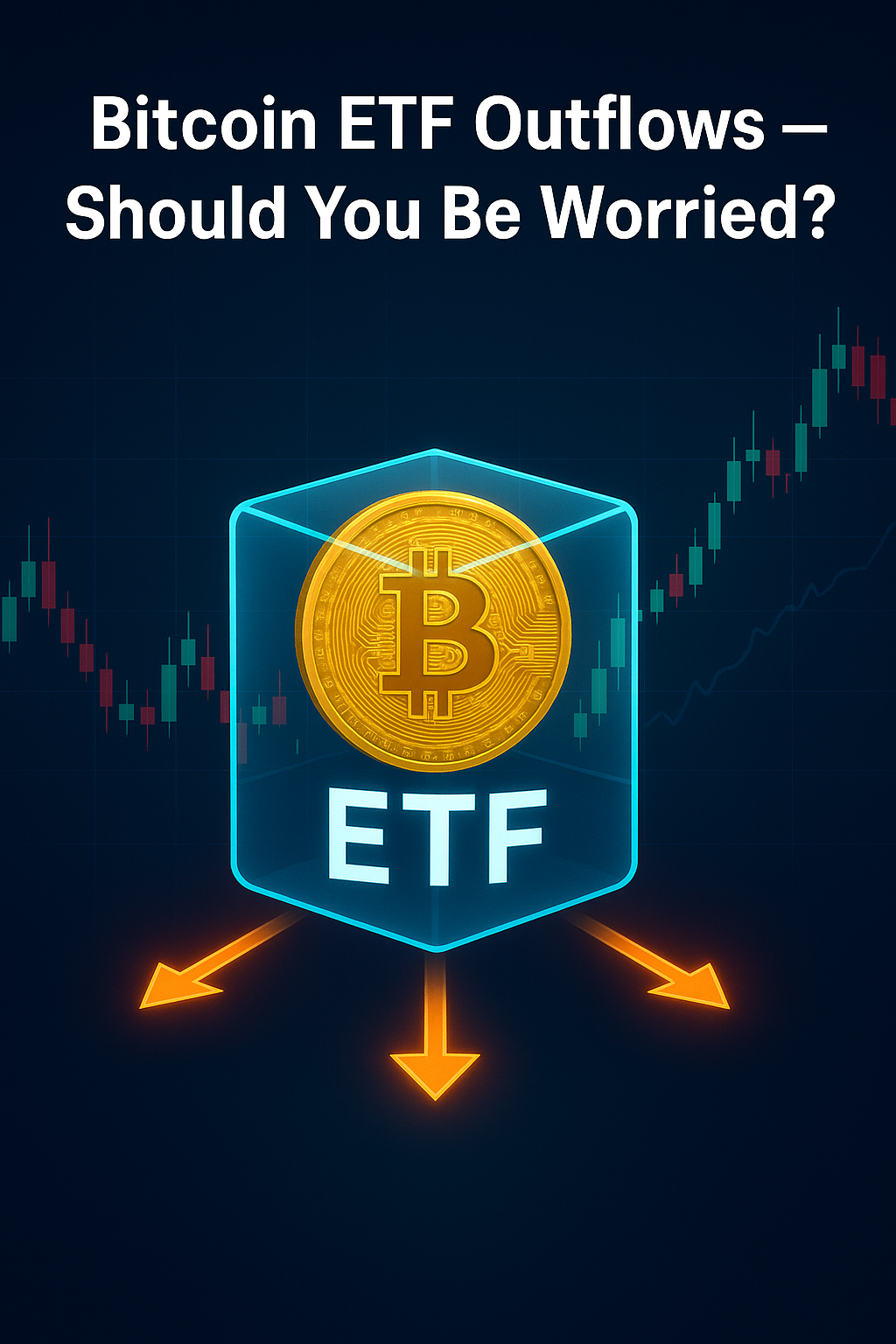🔎 What Are Bitcoin ETFs?
A Bitcoin ETF (Exchange-Traded Fund) acts as an investment bundle that tracks Bitcoin’s price. Rather than purchasing Bitcoin outright, investors can buy ETF shares on the stock market. This approach allows traditional investors to gain exposure to Bitcoin without the need to handle wallets, exchanges, or private keys.
💸 What Does “Outflow” Mean?
ETF outflows occur when investors withdraw money from these funds. Picture people selling their Bitcoin ETF shares—this action reduces the total investment in the fund. Outflows often spark questions about a potential decline in Bitcoin confidence.
🚨 Why Do Outflows Raise Concern?
Substantial outflows can indicate investor unease about Bitcoin’s price outlook. When many people sell , it puts pressure on the market and can push Bitcoin’s price downward. But outflows don’t always spell trouble. In some cases, investors move their money to different funds, spread out their investments, or cash in after a price increase.
📊 Potential Causes of Bitcoin ETF Outflows
- Profit-Taking → Investors sell Bitcoin when its price goes up.
- Market Volatility → Unpredictable crypto markets can drive investors away.
- Regulation Concerns → Government restrictions or unclear policies might frighten people.
- Better Investment Options → Some move their money to new ETFs or alternative coin funds.
🤔 Should Investors Panic?
Not ! Outflows happen in financial markets. They often show short-term shifts instead of long-term faith. Bitcoin stays a changeable asset, and investor actions shift with news updates.
✅ Final Thoughts
“Bitcoin ETF Outflows — A Red Flag?” depends on how you look at it. Outflows might make some people cautious, but they don’t always mean Bitcoin is struggling. Rather, they show how crypto markets keep changing and moving.
If you’re in it for the long haul, the best thing to do is to keep yourself up-to-date, spread your investments around, and try not to let your feelings guide your choices.
